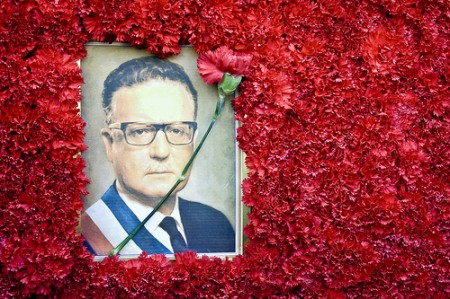
When it comes to natural disasters, Chile has a troubled past. As the plume of ash from volcanoes at Puehue and Cordón Caulle continues to blanket the skies and force people from their homes, rebuilding efforts following last year’s earthquake have only just begun. Fifty years ago Chile was also the site of the most powerful earthquake ever recorded – the gran terremoto, at Valdivia – and initial indications following this latest event suggest that the geological situation may get worse in the future.
But if its history of geological instability were not enough, Chile is also struggling with its political past. On 23 May, in compliance with a court order, the body of former President Salvador Allende was exhumed in order to begin a formal investigation into the disputed circumstances of his violent 1973 demise.
There are many versions of the events. The official story – and the one accepted by Allende’s family – is that the President shot himself (with an AK-47 given to him by none other than Fidel Castro) shortly before rebel forces stormed his office. Another version has it, instead, that he was gunned down in a defiant last stand; yet another, that he was executed by a subordinate after a botched suicide attempt. But the man ultimately responsible (if probably not personally) for Allende’s death is General Augusto Pinochet himself, whose successful coup d’etat then saw him installed first as the head of the governing junta and then as president.
